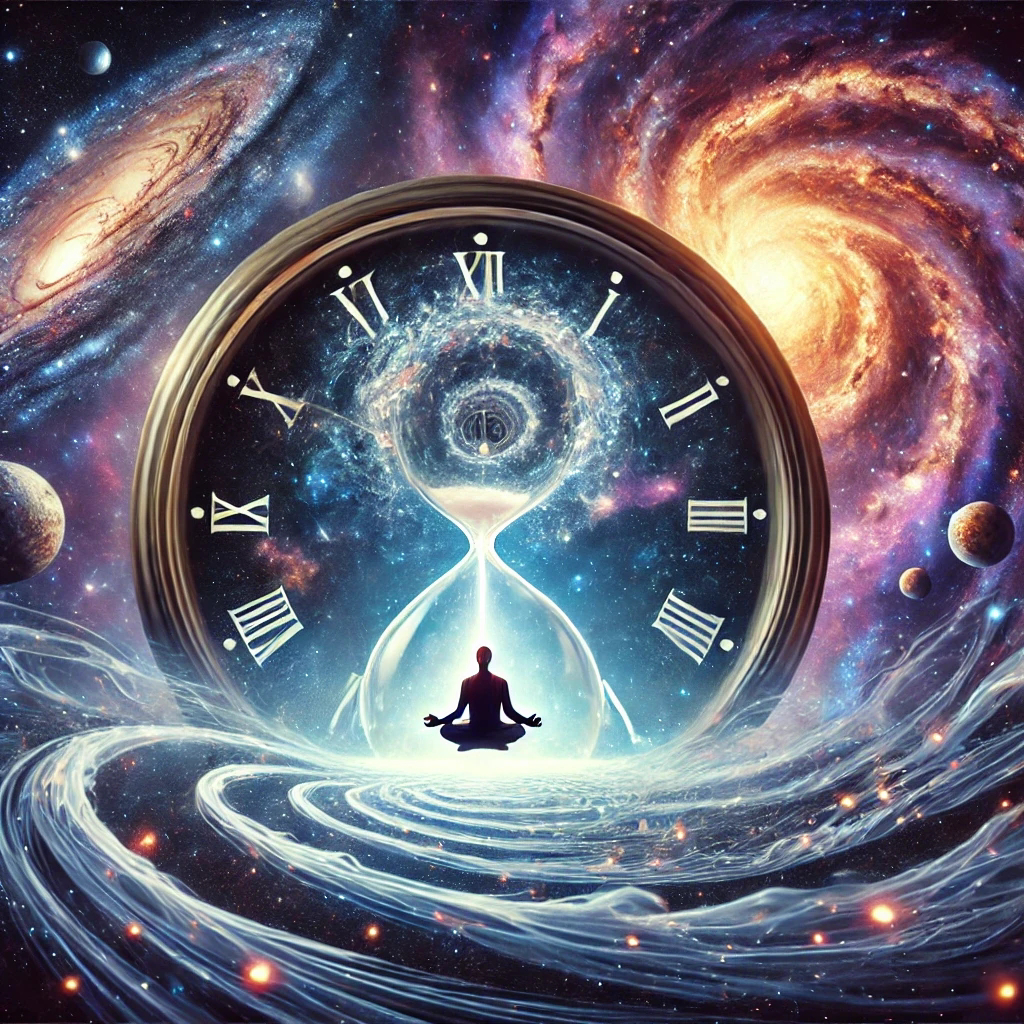Hi there, dreamers and deep thinkers,
As the calendar flips to another year, we collectively pause to celebrate the passage of time. We make resolutions, reflect on the past, and dream about the future. But what if time—the very thing we’re marking—is an illusion? What if this ‘New Year’ is just a mental construct we’ve agreed upon to make sense of a reality far more complex and mysterious?
Let’s unravel this fascinating idea, blending philosophy, quantum physics, and our shared human experience.
What Is Time, Really?
Time feels intuitive. The sun rises, the sun sets, seasons change, and years pass. But philosophers and scientists have long questioned whether time is something fundamental to the universe or merely a convenient framework created by human minds.
The Linear Illusion
We perceive time as linear: a straight path stretching from the past, through the present, and into the future. This perspective is deeply ingrained in our culture, influencing everything from how we structure our lives to how we understand history. But is time really linear?
Albert Einstein shattered this notion with his theory of relativity. According to Einstein, time is not a constant—it’s relative. It bends and stretches depending on factors like speed and gravity. In other words, time is more like a flexible fabric than a rigid ruler.
This suggests that our experience of time as a ticking clock is an illusion, a construct our brains use to navigate reality.
Quantum Physics: Where Time Gets Weird
If relativity messes with our sense of time, quantum physics completely blows it apart.
The Timeless Universe
In the quantum realm, particles behave in bizarre ways. They can exist in multiple states at once, a phenomenon called superposition. They can even influence each other instantly across vast distances, defying the apparent limits of time and space.
Some interpretations of quantum mechanics, like the Wheeler-DeWitt equation, suggest the universe doesn’t have a time variable. Instead, everything that ever was or will be exists simultaneously in a kind of eternal “now.” Time, from this perspective, is not a fundamental aspect of reality but a side effect of our perception.
Philosophy’s Take on Time
While quantum physics challenges our understanding of time from a scientific angle, philosophy approaches the question from a more experiential perspective.
Time as a Mental Construct
Immanuel Kant argued that time (and space) are not properties of the external world but categories of human thought. In his view, we impose the concept of time onto our experiences to make sense of them.
Kant’s ideas align with many Eastern philosophies. In Hinduism and Buddhism, time is often seen as cyclical rather than linear. The past, present, and future are interwoven, forming a continuous loop. This cyclical view aligns with the idea that the ‘New Year’ isn’t really new—it’s simply another turn of the wheel.
Cycles vs. Progress
Speaking of cycles, let’s dive deeper into how they shape our understanding of time.
Nature’s Rhythms
The Earth orbits the sun, the moon waxes and wanes, and the tides ebb and flow. These natural cycles are undeniable, and they’ve been the basis for calendars and timekeeping throughout human history. But do they truly define time, or are they just markers of change?
The Illusion of Progress
In modern society, we often view time as a ladder—a progression toward improvement, growth, and success. This idea of linear progress fuels everything from technological innovation to personal development.
But what if progress is just another story we tell ourselves? What if time is less like a ladder and more like a spiral, where we revisit the same themes and challenges in slightly different forms?
So, What Does ‘A New Year’ Truly Mean?
When we strip away the illusion of linear time, the concept of a ‘New Year’ takes on a different meaning. It’s not about leaving the past behind or racing toward the future. Instead, it’s an opportunity to pause and reflect on the cycles that shape our lives.
A Moment of Awareness
The ‘New Year’ is a collective ritual—a moment when billions of people around the world stop and pay attention. In this sense, it’s not the passage of time that matters but the awareness we bring to it.
A Chance to Reset
Even if time is an illusion, rituals like the New Year serve a purpose. They allow us to step back, reassess, and set intentions. Whether these intentions align with the cosmic truth of timelessness or our human need for structure, they hold power.
Living Beyond the Illusion
If time is an illusion, how should we live? Do we abandon calendars and clocks, or do we embrace them as useful tools? Here are some ways to navigate this paradox:
1. Be Present
The present moment is all we truly have. Whether time is linear, cyclical, or nonexistent, our experience happens now. Practicing mindfulness can help us stay grounded in this eternal moment.
2. Honor the Cycles
While time may not be real, cycles are. From the changing seasons to the rhythms of our own lives, these patterns offer opportunities for growth and renewal.
3. Embrace Timelessness
What if we approached life as if everything we desire—love, peace, fulfillment—already exists? This perspective shifts our focus from striving to being, from doing to experiencing.
A New Year, A New Perspective
So, as we enter this ‘New Year,’ let’s challenge the way we think about time. Instead of seeing it as a finite resource slipping through our fingers, we can view it as an infinite canvas where every moment is both a beginning and an end.
Time may be an illusion, but the meaning we create within it is very real.
Stay curious, and have a safe and happy New Year’s Eve!




